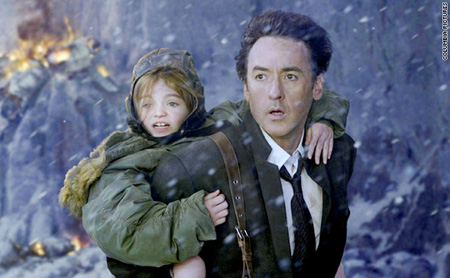That’s the day the world will end — or at the very least undergo a major transformation, according to doomsday theories that have surfaced online, on bookstore shelves, and in movie theaters.
As the hype surrounding the 2012 phenomenon builds, fueled by today’s release of the film 2012, media outlets from across the country are turning to Anthony Aveni, astronomy and anthropology professor and Mayan researcher, for his expert analysis on the topic.
“It’s a teaching moment,” Aveni told National Geographic. “If we allow people to fear 2012 and miss a great opportunity to learn about the Maya and their amazing culture, then we’re not doing our job.”
 His newly released book, The End of Time: The Maya Mystery of 2012, explores 2012 theories and explains their origins.
His newly released book, The End of Time: The Maya Mystery of 2012, explores 2012 theories and explains their origins.
Dec. 21, 2012 marks the end of a 5,126-year cycle on the Long Count calendar developed by the Maya, and some have speculated that the Maya chose this date because they thought something ominous would happen.
Aveni, who has studied the Maya for 35 years, says there is nothing threatening about 2012, and he hopes his book will help put the apocalyptic predictions to rest.
|
“What you have here is a modern age influence and modern concepts trying to garb the ancient Maya in modern clothing, and it just doesn’t wash for me,” he told CNN.com.
Aveni also recently authored an Archaeology Magazine article about the fallacies of the 2012 myth.
In the article, he points out that although the Maya believed in cyclic creations, they left no evidence to support the claim that the world will end at the completion of the Long Count cycle.
Does Aveni plan on seeing the movie?
“Absolutely!” he told The Post-Standard (Syracuse).
 |
| John Cusack and Morgan Lily flee destruction in 2012. |